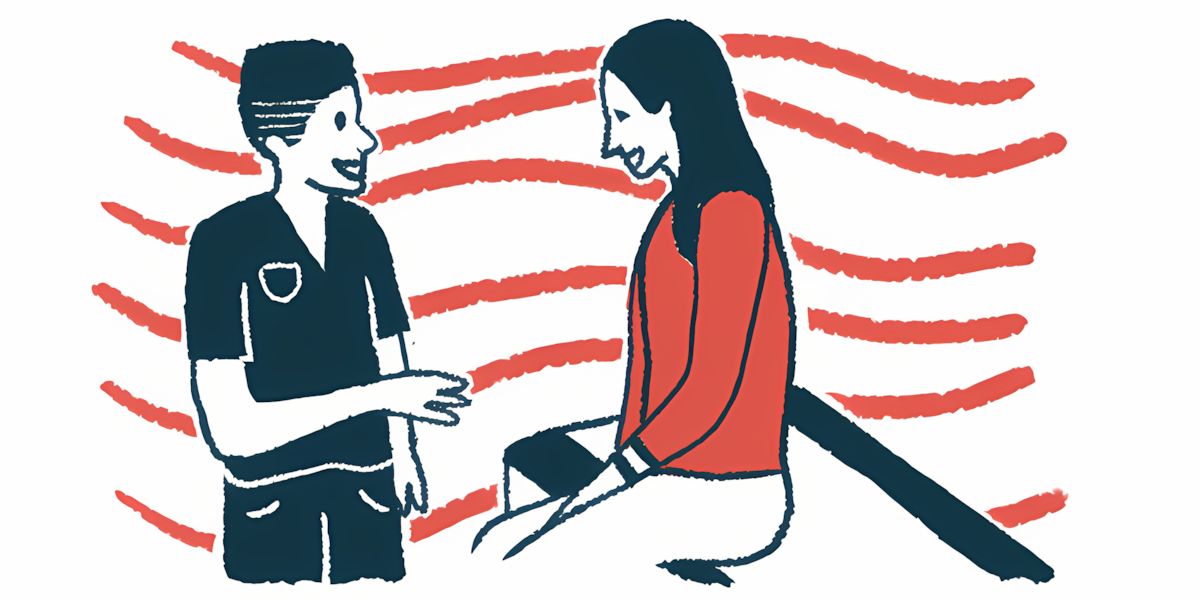Ambio’s ibogaine therapy program targets MS, other conditions
Naturally occurring psychedelic eyed as potential supportive treatment
Written by |

Ambio Life Sciences has launched a clinical program to test ibogaine — an experimental, naturally occurring psychedelic — for neurodegenerative conditions such as multiple sclerosis (MS). The program aims to offer therapeutic support in a safe, medically supervised setting.
Now open to the public following a soft launch earlier this year, this neuroregenerative program is designed for patients considering ibogaine as part of their care strategy. It has already treated 30 patients in a dedicated treatment facility.
In addition to MS, the program is available for people with Parkinson’s disease, amyotrophic lateral sclerosis, stroke, traumatic brain injury, and other conditions. The goal is to explore ibogaine as a potential supportive treatment.
“We’re creating a safe, structured environment for people with these conditions to explore ibogaine, and we could be on the cusp of uncovering how ibogaine may support brain healing in ways we don’t fully understand today,” Jonathan Dickinson, Ambio’s CEO and co-founder, said in a company press release.
Lesion volume reduced, symptoms eased in 2 patients
In MS, damage to the brain and spinal cord results in a wide range of symptoms, including vision problems, poor coordination and balance, fatigue, and pain. Available treatments can prevent new damage from occurring and slow down the progression of disease, but they generally cannot help patients regain lost functions.
Ibogaine, currently illegal in the U.S., is a psychedelic found in the root bark of the African iboga plant. It works by acting on receptors — for example, NMDA and opioid receptors — that play a role in brain activity. Ibogaine also increases the production of molecules that help nerve cells survive and form new connections.
As both a clinician and an MS patient, I’ve experienced the complexity of these conditions and the limitations of traditional treatments. The relief some patients are reporting so far is motivating, including improvements in eyesight, mobility, and neuropathic pain.
In a recent report, ibogaine reduced lesion volume and eased symptoms of MS in two patients — one with relapsing–remitting MS and the other with secondary progressive MS. Following treatment, both patients also showed signs of improvement on brain scans suggestive of new connections between nerve cells and rewiring of brain circuitry.
“As both a clinician and an MS patient, I’ve experienced the complexity of these conditions and the limitations of traditional treatments,” Lyndsey Ryan, Ambio’s chief therapy officer, said. “The relief some patients are reporting so far is motivating, including improvements in eyesight, mobility, and neuropathic pain.”
In Ambio’s program, a loading dosing is optimized for tolerability, followed by extended microdosing (taking very small doses). Weekly group sessions offer ongoing support through and beyond the treatment period. In addition to providing safe access to ibogaine, the company will also collect real-world data.
While the program does not promise a cure, it gives patients a chance to participate in an emerging therapy that could support better quality of life and provide insights for future research.
“Every participant is helping us learn what’s possible,” said Ryan, who is also the program’s lead therapist.
Ibogaine relived ‘MS hug’ for patient
Country music artist Clay Walker and NFL Hall of Famer Brett Favre were among the first to try the program. Both were diagnosed with neurodegenerative diseases — Walker with MS in 1996, and Favre with Parkinson’s in early 2024.
“I was told about ibogaine from a friend who completed the treatment and was blown away by the results,” said Favre. “Since coming to Ambio, I’ve felt a real shift, especially in my sleep and energy.”
Walker shared a similar experience. “My journey with ibogaine was extraordinary,” Walker said. “It relieved what we call the ‘MS hug,’ that painful tightness in the abdomen, and gave me clarity, focus, and real relief from stress. My hope is that ibogaine can one day complement the treatments MS patients already rely on.”
Ambio is working with Dalhousie University in Halifax, Canada, to explore how ibogaine works in people with neurodegenerative diseases, namely how it impacts biomarkers of neuroinflammation and disease models of Parkinson’s, MS, and stroke.
“This work may help define what ibogaine treatments for neurodegenerative diseases could look like in the future,” Dickinson said. “Even if we don’t fully know what shape that will take yet, preclinical research and each patient’s experience brings us closer to understanding how ibogaine may support neurorepair.”

